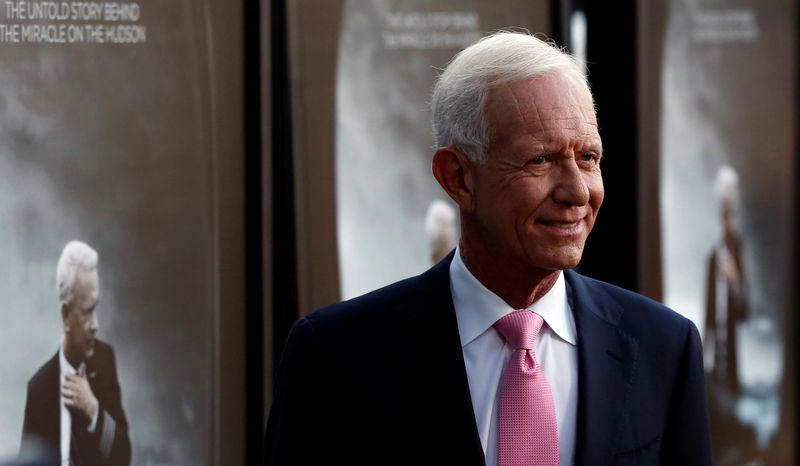By David Shepardson
WASHINGTON/MONTREAL (Reuters) -C.B. "Sully" Sullenberger, the commercial pilot who safely landed an Airbus A320 on New York's Hudson (NYSE:HUD) River in 2009 after hitting a flock of geese, said on Thursday he would step down as U.S. envoy to an international aviation group on July 1.
Sullenberger was confirmed in December as U.S ambassador to the International Civil Aviation Organization based in Montreal. He said in a statement that "relinquishing my role" was not an easy decision but did not offer a reason for his departure after just over six months.
The announcement comes a month after Sullenberger raised concerns about attempts by regional airlines to reduce pilot requirements that he warned would weaken safety.
A State Department spokesperson said Sullenberger's "indisputable credibility on aviation safety and security matters reinforced American leadership on those issues and strengthened our nation’s partnerships across the globe."
The United States is expected to play an important role at ICAO's triennial assembly later this year, where countries are trying to broker a long-term agreement on aviation emissions including mandating more efficient future aircraft.
Sullenberger has remained a vocal advocate for aviation safety and said Thursday his departure from ICAO "will not end is my determination to use my voice as an ardent advocate for the safety of everyone who flies."
"I am deeply committed to aviation safety and security – to the safety and wellbeing of all who fly," he said, adding this commitment predated the 2009 "Miracle" flight and "will remain my focus as I return to private life."
Last month, a pilots union distributed a statement from Sullenberger raising concerns about efforts by regional airlines to reduce new pilot requirements, quoting him saying they were "trying to weaken critically important pilot experience standards that are needed to keep passengers and crews safe."
In 2019, Sullenberger testified before Congress in support of requiring pilots to get new simulator training before Boeing (NYSE:BA) 737 MAX flights could resume following two fatal crashes.

"Our current system of aircraft design and certification has failed us," Sullenberger said.
Congress in 2020 approved sweeping legislation to reform how the FAA certifies new airplanes.